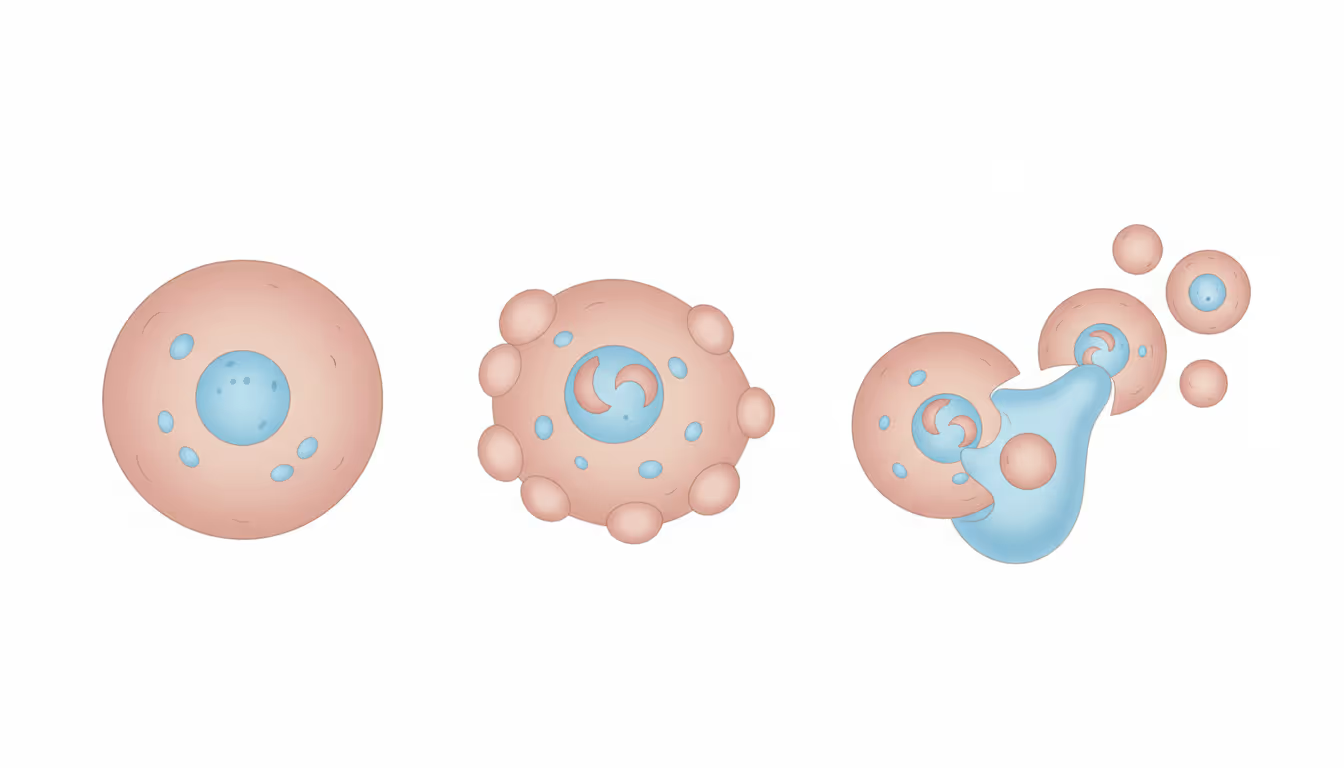
Apoptosis: This process involves a programmed series of steps that lead to cell death without releasing harmful substances into the surrounding areas. It is essential for the development and maintenance of bodily health by removing old, unnecessary, or damaged cells. The human body replaces around one million cells every second. An imbalance in apoptosis, whether too little or too much, can contribute to various diseases. If apoptosis fails to function properly, cells that should be eliminated may survive and become immortal, as seen in cancer. Conversely, if apoptosis is too active, it can destroy too many cells, causing severe tissue damage, such as in strokes and neurodegenerative diseases like Alzheimer's, Huntington's, and Parkinson's. This process is also known as programmed cell death or cell suicide.




